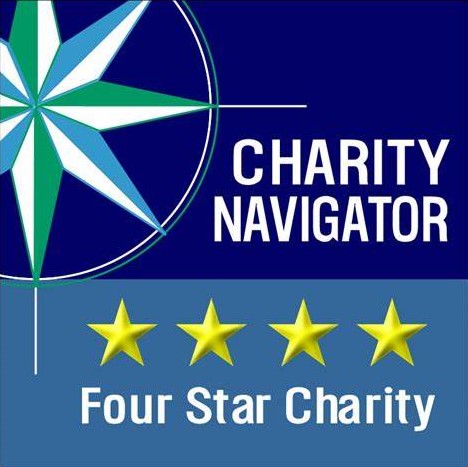George Washington School of Medicine was founded in 1824, the GW School of Medicine and Health Sciences (SMHS) is the 11th oldest medical school in the country and the first in the nation’s capital. Since its establishment, the school has been at the forefront of medical education and has grown to include highly-ranked programs in the health and biomedical sciences. With dozens of toptier residency programs, SMHS is a competitive and esteemed destination for medical school graduates across the country. Today, students and residents are exposed to some of the most innovative educational techniques, taught by world-renowned faculty members, in state-ofthe-art facilities. In this Innovator series article, AAKP is pleased to feature Dr. Dominic Raj, Director of the Division of Renal Diseases and Hypertension at GW School of Medicine and Health Sciences and Co-chair of the Inaugural Global Summit: Innovations in Patient-Centered Kidney Care – an educational collaboration between AAKP and the GW SMHS.
Who are your personal heroes?
My heroes include the late Professor JCM Shastri, MD, who was the Chief of Nephrology at Christian Medical College in Vellore, India. He was an inspiring teacher, role model, and a remarkable physician. He taught me that there is no substitute for hard work. Another hero is Dr. William E. Mitch, Professor of Medicine at Baylor College of Medicine, former president of the American Society of Nephrology (ASN) and a passionate researcher and who was an inspiration to me. He always found time to help junior faculty from any institution and expected nothing in return.
Why did you choose the field of Nephrology?
Nephrology chose me. During my residency (MD) at the Stanley Medical College, I was debating between neurology and cardiology when I was called to cover the nephrology inpatient service for a week. Soon I realized that the kidney is the smartest organ in the body. Never before had I seen such astute application of physiology and immunology in clinical medicine. I was captivated by the nephrologist’s ability to control the interior milieu of the body by dialysis and to modulate the immune system to accept a transplanted kidney. However, the most important deciding factor was the impact on patient outcomes. Without renal replacement therapy, the patient’s mortality is 100%. I realized that besides out-thinking other specialties, nephrologists save lives every day. It is a great feeling and I am a very proud nephrologist.
How did your first experiences with kidney patients impact your approach to patient engagement?
I observed how dialysis remarkably improves physical symptoms in patients with endstage kidney disease, but soon realized the anxiety, stress, and financial impact of the disease. Treating kidney disease should be a collaboration between the physician and patient, to ensure that we are taking care of the patient’s physical and emotional well-being. I am a lifelong learner and throughout my career, patients have and continue to teach me a great deal, both professionally and personally. The insights they share from their experiences and ability to persevere are truly amazing.
At George Washington University School of Medicine and Health Sciences, you built and manage a highly talented medical team – tell us how you attract and retain talent.
George Washington University School of Medicine and Health Sciences has a unique legacy of providing innovative patient care for the population of Washington, D.C. In 1956, George Washington University purchased its first artificial kidney – a “Kolff Kidney” – and in 1964 Professor Alvin Parrish opened Washington D.C.’s first dialysis unit to serve the public. This began a tradition of progressive renal medicine that continued at George Washington University under the leadership of Professor Anne Thompson M.D., Professor Juan Bosch MD, Professor Paul Kimmel MD, and Professor Susie Lew MD. I was fortunate to inherit a strong clinical division, with the faculty members committed to advancing nephrology through education, research, and compassionate patient care. We attract talented physicians who are passionate about innovating patient care and serving the community. Under my tenure, the George Washington University kidney transplant program was re-established, a state-of-the-art acute hemodialysis unit was built to provide a myriad of extra-corporeal therapies, and we established satellite clinical services in Maryland and Virginia to provide care for our patients closer to home. We are now a quaternary care center for Onco-nephrology, Glomerulonephritis, complicated hypertension, and Kidney Wellness Clinic that promotes life style modification for slowing progression of kidney disease. We were honored to be ranked as a high performing division in the U.S. News & World Report. George Washington University is at the forefront of nephrology research, inventing gene-based therapies for hypertension, exploring novel therapies to improve outcome in hemodialysis patients, piloting new therapies for chronic kidney disease and participating in research aimed at improving kidney transplant outcomes. The George Washington University Division of Nephrology is also pioneering microbiome-based therapies for kidney disease. We are fortunate to have outstanding faculty and the very supportive leadership at George Washington University, who help us to advance our mission of providing the best care for our patients. I draw my inspiration from our patients and my faculty and fellows have been the pillars of support on whom I lean.
As a practicing nephrologist, teacher, mentor, researcher and visionary – what innovations do you foresee for patients in the next 3-5 years?
After decades of neglect, the government is focusing on the epidemic of kidney disease, thanks to the efforts of organizations such as the American Association of Kidney Patients (AAKP) and the American Society of Nephrology (ASN). A number of innovative initiatives have been launched such as the National Institutes of Health/National Institute of Diabetes, Digestive and
Kidney Diseases (NIH/ NIDDK) sponsored “Kidney Precision Medicine Project,” the APOL-1 long-term kidney transplant outcome (APOLLO) study focused on African-American patient disease impacts, which is also lead by NIH/ NIDDK, and the new U.S. Department of Health and Human Services collaboration with ASN known as the KidneyX Innovation Accelerator Project. Each of these initiatives are positioned to develop prevention strategies and deliver personalized treatment based on variation in the genes, environment, and lifestyle for each patient. Advances in manipulation of matter on an atomic and molecular scale (nanotechnology) and 3D printing, a process of making three-dimensional solid objects from a digital file are poised to transform the way we are currently managing kidney problems and kidney transplantation. I am also very optimistic about the new alignment of the U.S. Food and Drug Administration (FDA) and the Centers for Medicare and Medicaid Services (CMS) in kidney care which will make it easier to regulate and pay for new devices that are on the horizon such as potential implantable and wearable kidney replacement therapies.
You helped pioneer and launch the AAKP and George Washington University Inaugural Global Summit on Innovations in PatientCentered Kidney Care. What you do you hope attendees walk away with after participating this event?
George Washington University and I are honored to be partnering with AAKP in this Inaugural Global Summit, which I am optimistic will be an annual event, given the enthusiasm among patients, providers, and policy-makers. Paul Conway, AAKP Chair of Policy and Global Affairs and I had been contemplating such a conference for a long time individually, waiting for the right partner. When we met, the concept rapidly took shape fueled by the unabated enthusiasm of AAKP and George Washington University’s desire to host the event. It has been conclusively shown that when patients partner with physicians, it leads to improved health outcomes, enhanced quality of life, and delivery of more appropriate and cost-effective treatment. I hope our attendees walk away with a better understanding of the latest research underway worldwide, as well as the unique perspective of patients and providers. This is a first small step towards a larger dialogue on transformative kidney care because the epidemic of kidney disease is a worldwide issue and it will take a global commitment of both patients and experts to collaborate and to drive innovative solutions.
George Washington University treats a wide variety of patients – ranging from Presidents to Congressional leaders to high-powered executives and, of course, a wide-range of international and local D.C. residents. What is your common approach to all patients and what key factors does every kidney patient have in common?
We provide the exact same compassionate and personalized care to the rich and powerful as we do for “John or Jane Doe” – to George Washington University and to our medical professionals, this is both a matter of ethics and principle and we know kidney disease can strike anyone. No matter who we treat, their questions are the same, namely 1.) why was I not warned before about my kidney problem so that it could be prevented?; and 2.) given the magnitude of the problem, why aren’t more resources prioritized toward this disease? Each patient motivates us to strive harder for a cure. The long hours and the heavy workload of the nephrologist is more than compensated by the appreciation and gratitude from each one of our amazing patients, regardless of their position professionally or in life.
Dominic Raj, MD, DM, FASN is board-certified in Internal Medicine and Nephrology. He is a Professor of Medicine, Biochemistry & Genetics and Biostatistics and Epidemiology at the George Washington University (GW) School of Medicine and Health Sciences. He is also the Director of the Division of Renal Diseases and Hypertension at GW.
Dr. Raj is a Fellow of the American College of Physicians and a Fellow of the American Society of Nephrology. He has received a number of awards and recognition from various national and international institutions including the Distinguished Researcher Award from GW in 2014.
During his tenure at GW, Dr. Raj expanded the research portfolio, added new clinical services and revamped the educational program. He established a number of sub-specialty clinics such as the glomerular diseases clinic, kidney stone clinic, Polycystic Kidney Disease clinic, Kidney Wellness Clinic and ultrasound clinic. He is pivotal to establishing the kidney transplant program at GW. In order to serve the community needs, he established satellite practices in Maryland and Virginia. He has been named Washington Top Doctor multiple times. During his tenure, the Division of renal Diseases and Hypertension has been named “high performing” specialty by the US and World Report.
Dr. Raj has been invited as a visiting professor to a number of prestigious institutions including Harvard Medical School, Cornell University and New York University. He has chaired and spoken in multiple symposia organized by the American Society of Nephrology, International Society of Nephrology, German Society of Nephrology and European Association for the Study of Diabetes.
This article was originally published in aakpRENALIFE, May 2019.






























